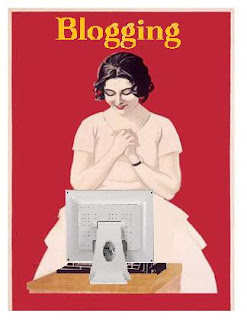 By Carol Tice
By Carol Tice
…I wondered if there was any benefit to having a separate blog and web-site. I have a blog (mostly to save money and time because I have a full-time job as well as freelance writing). Any thoughts on this? Thank you, I’m trying to ramp up my game a little.
You may not know this, Lynn, but I am the perfect person to ask! As it happens, I began with a free site just like you, in my case a ZoomInfo profile. Then around 2008 I got it together and with help from a teenage Web developer I found in my local high school’s digital-design class for $12 an hour, I put up my own Web site, caroltice.com. Then I added a blog to it about the business of writing, which became the Make a Living Writing blog. The blog lived under a tab, while most of the site focused on getting me new writing gigs.
But things started to evolve and change. I found I loved blogging about writing, and had a lot of experience to offer. I quickly found a substantial, enthusiastic audience.
A few months ago, I spun MALW off to its own, separate Web site.
Why did I separate them? And why, in turn, might you want to think about separating your blog from your writer site? The answer depends on what you’re trying to do with your blog, and what you’re trying to do with your author site.
I think a lot of writers don’t ask themselves: Why do I blog? What is my goal? Why am I doing this free writing? If you can answer those questions, you’ll know whether your blog and writer site belong together or apart. Simply, if the blog and your resume site serve the same goal, they will likely be happy on a site together. If they’re going in different directions, they may do better apart.
For me, I soon realized I was going to want to write e-books that expanded on the Make a Living Writing blog. Then I’d want to set up a shopping cart and a promotional page and sell the ebooks. I also wanted to be able to recommend books, friends’ ebooks, classes and other items to visitors to MALW in an effort to turn MALW into a small business of its own.
At the same time, site-monetizing strategies were totally inappropriate to my resume site, which is mainly for prospective clients to come and see my resume and clips. I didn’t want them to think of me primarily as someone flogging an ebook. I had come to a fork in the road.
I also wanted to be able to be brutally honest about my writing life — the problem clients, the pay rates, the negotiation strategies. I soon realized I didn’t want these entries to be the first piece of mine a prospect saw! MALW is for new and developing writers; caroltice.com is for business owners and magazine editors. Two audiences, two sites.
Do your blog and author site belong together or apart? Leave a comment and tell us the answer, and why. Lynn, hope you’ll weigh in, tell us what your blog is about, and whether it goes with your resume site.
One final thought I’ll throw out there — I notice that on many new-writer sites, the blog predominates on the home page, while the resume and other clips are hidden down the margins or under tabs. I always wonder if that’s the best strategy, if the main point is to get writing gigs. Interested to hear some other opinions on that. I did mine the opposite way — mostly about the resume and clips, blog on the side.
This post originally appeared on the WM Freelance Writer’s Connection.
Photo via Flickr user Mike Licht, NotionsCapital.com